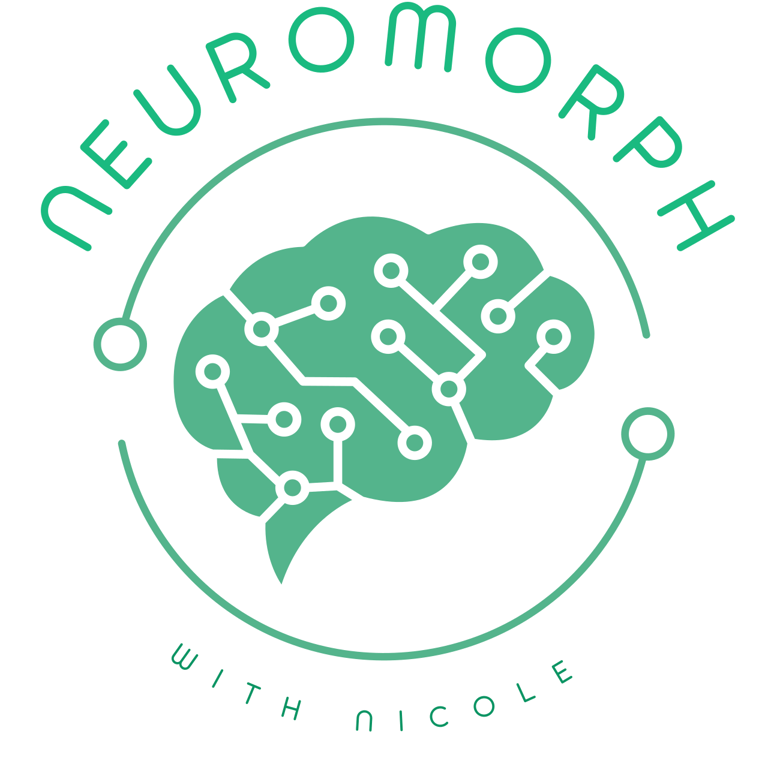Empowering Mental Health Through Education
My name is Nicole, and I am proud to be the founder of NeuroMorph. The purpose behind creating this organization stems from a personal journey shaped by my own traumas. I firmly believe that comprehending how our brains adapt and change in response to trauma is crucial for individuals like myself. This understanding is key to fostering trust in the treatment plans we develop. Through my healing process, this knowledge proved to be vital, offering insights that significantly contributed to my recovery. NeuroMorph aims to equip others with the same vital information, empowering them on their paths to healing. I created NeuroMorph with the hope that no one has to navigate their struggles alone, and together we can uncover the resilience of the human mind.
3+
Bachelor's of Science in Behavioral Neuroscience
B.B.NSc
Years of Experience
For twelve years, I battled constant depression. Over the past three years, I embarked on a personal healing journey, determined to find a way out. I sought help from numerous therapists and psychiatrists, yet I often found myself abandoning their treatment plans. The reason? I felt unheard and marginalized, as if my unique struggles were lost within a one-size-fits-all approach to mental health care. My experiences were deeply personal and complex, deserving of a tailored treatment plan that acknowledged my individuality. I came to realize that, as patients, we must advocate for ourselves, pushing for the attention and care that reflect our specific needs. It's crucial to demand for a mental health system that values our unique stories, ensuring we receive the personalized support we deserve on our paths to healing.
As I pursued my bachelor’s degree in behavioral neuroscience, I became increasingly aware of the significant gaps in knowledge that large healthcare systems often overlook. Each day, I was astonished by the wealth of information—facts, statistics, and potential consequences—regarding current treatment plans that patients are frequently left uninformed about. This critical knowledge should be standard for anyone facing health challenges. Over the course of six years, I dedicated myself to a range of biology and psychology courses to grasp the intricacies of how the body and brain function. My journey reinforced my belief that patients deserve transparency and education about their own conditions to foster informed decision-making in their treatment.
After six years of studying the complex interplay between body and mind, I finally began to understand my own deficiencies. However, I believe that no one should endure such a lengthy educational journey or accumulate significant debt just to achieve peace of mind. The reality is that not everyone has the privilege to access extensive schooling, and this inequality is unacceptable. This realization inspired me to create NeuroMorph—a platform dedicated to making valuable insights about mental and physical well-being accessible to all. My goal is to ensure that regardless of financial constraints or time limitations, everyone can benefit from knowledge that promotes healing and personal growth.
Specifics Leading to NeuroMorph's Creation:
Educational:
Occupational:
While juggling my school responsibilities, I worked as a behavioral health technician at a pediatric psychiatric hospital. Throughout my experience, I observed a troubling trend within our healthcare system, particularly among major hospitals: a lack of concern for their patients and employees. The training we received was inadequate, primarily focusing on restraint techniques without equipping us with the necessary skills to effectively support unstable patients. Moreover, the compensation we received was insufficient, especially considering the risks we faced daily, including the potential for exposure to bodily fluids and physical assaults from combative patients. This environment significantly challenged our ability to provide proper care to our patients.
During my time at the hospital, I witnessed the reality of generic treatment plans applied to patients, which often overlook their unique needs. This one-size-fits-all approach seems to contribute significantly to the cycle of repeat patients seeking care. Several individuals leave our facility without receiving the specific assistance they require, and the outpatient resources available are overwhelmed and hard to access. As a result, patients find themselves stranded in a system that fails to provide adequate support. This growing issue creates a vicious cycle where those in need of care are left with little to no options. It has become increasingly clear that a more personalized approach to treatment is essential to break this cycle and ensure that patients receive the comprehensive care they deserve, and those of us who want to provide that care for patients need to be fairly trained and compensated by our employers.
Personal:


